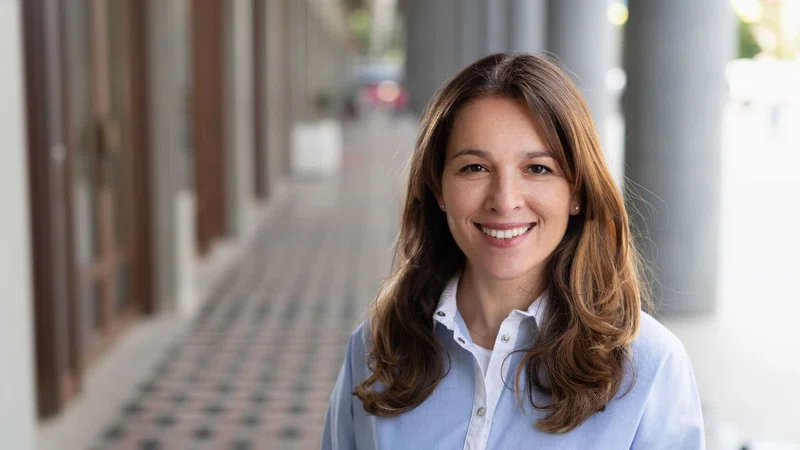"Regionally, the MENA fintech market will reach a value of $2.5bn by 2022, according to research company MENA Research Partners".
INTRODUCTION
One could start such an article by mentioning Covid being a catalyst for the innovations that spurred during the year 2020 and the first quarter of 2021 throughout the Middle East region, that the population started to shift toward a digital mental frame embracing the use of their mobile phones and laptops to perform financial actions, well I would start with that as well.
This article does not encompass all the Middle East members, as it is more focused on the GCC countries, with special country deep dives. The GCC consumers during this period got a taste of increasing technological innovations and solutions around:
- Digital Banking
- Payments and Digital Wallets
- Cryptocurrencies
With a growing demand for e-commerce solutions, financial inclusion, and accessibility, there has been an influx of startups, FinTech accelerator programs, and public initiatives to enhance this trending ecosystem.
DEEP DIVE NUMBER 1 – UNITED ARAB EMIRATES
From Open Banking to Blockchain to Banking-as-a-Service to Cybersecurity, a lot of us could agree that the UAE is leading the FinTech development in the MENA region with Dubai being its heart and engine. One of the players fueling this lead is The International Financial Centre (DIFC) – Dubai’s Financial Hub – focusing on internet penetration and e-commerce growth. Another key player is The Dubai’s Financial Services Authority contributing to “Account Information Service Provider” (AISP) Licenses and the “Payment Initiation Service Provider” (PISP).
It didn’t only stop at that; international partnerships have also proven to be a solid backbone of Fintech advancements. Mastercard partnering with Network international – Dubai-based Digital Commerce Enabler - “to collaborate and launch a new digital platform for digital payment accelerations across the MENA region” [week 3]. Mastercard once more partnering with DIFC to launch the “Global Cyber Forward Program” to strengthen global cybersecurity [week 5]. FinTech accelerator programs were also on the rise with particularly the Startupbootcamp FinTech which on [week 10] concluded a third-cycle demo with 11 startups.
Digital Banking is also flourishing in the region. Arguably the most noticeable event would come from YAP – Digital Banking API – which has “launched the first independent banking platform in the UAE” [week 9] to then raise $10m in Series B funding round to scale up on its API services for “banks, startups, and consumer internet companies” [week 11]. Additional funding rounds worth mentioning come from Now Money – Digital Banking Startup – which raised $7m in funding round [week 13] to “expend its digital payroll and account services with Shariah Compliant to migrant workers in the GCC region”.
Switching on from Digital Banking to Banking-as-a-Service (BaaS), NymCard – BaaS Startup - has made quite a noise with its $7.6m Series A funding round [week 5] to “deliver API-based processing platform to financial institutions, banks, and FinTechs. Still going with NymCard as on [week 8] it scaled up its API platform across the MENA region to enhance its payments services. Yet the most distinct funding round observed comes from Policybazaar - Online Marketplace offering insurance and personal finance products - raising $75m [week 13] to expand its services in the Middle East region.
With the progressively diversified market products and services across the market, it would be quite time-consuming for an average customer to get ready to take on a digital approach. Therefore BankOnUs – Comparison Website Platform – has come to play to provide comparisons on diverse financial products by banks and insurances to then on being announced on [week 5] to win the “Mastercard Technology Start-up of the Year Award 2020”.
Other startup innovative solutions include Baraka – Trading FinTech Startup – which “Introduced commission-free mobile trading platform by launching a waitlist and free stock giveaway” [week 10] and Klaim – FinTech SaaS – which raised $1m in seed funding round [week 11] to provide solutions around “medical claim management”.
Aside from startup events, we see that Khanza – Wholesale Data Center Provider – has decided to “build new data centers to accelerate UAE Digitization [week 5]. IBC Group Limited – Private Equity Investment Company – on the other side focused on cryptocurrencies by first partnering with Canadian startup Artifi to promoted women artists globally through “art gallery and tokenization initiatives [week 5] to then on pledge 100,000 Bitcoins to make it the largest BTC investment in history at that time [week 7] in order to support Miami 2.0 Blockchain Strategy Foundation. Mubadala – Sovereign Wealth Fund – on the other hand, has invested $150m in cloud-based messaging platform Telegram [week 12]. Let’s observe how would that shape up future FinTech events.
DEEP DIVE NUMBER 2 – SAUDI ARABIA
With its “Vision 2030” on the line and a revolutionary sandbox framework, Saudi Arabia is quite certainly starting to reform its economic and business landscape and FinTech is no exception, plus SAMA (Saudi Arabia’s central bank) seems to be a key component continuously fostering partnerships and growth among market players. Islamic Finance and Shariah-Compliant financial products and services constituted an important aspect in the FinTech growing wave as well.
Among the initiatives directed by SAMA during this period in FinTech are:
- Launching an instant payment system available 24/07 allowing transactions across various banks [week 7]
- Providing a banking license to Geidea as the first non-bank institution to be granted such license [week 12]
- To grant 2 additional licenses to International Digital Solutions Co and Azm FinTech Co to bring the number of such licenses to 13.
Other granted licenses worth mentioning are from:
- Tamam – FinTech Startup – which got licensed by a regulator to “offer consumers microloans digitally through a mobile app [week 1].
- Sarwa – UAE Based company – to set FinTech experimentations in Saudi Arabia allowed by its Capital Market Authority [week 2].
As for shariah-compliant and Islamic Finance innovations, a partnership between Mambu – German SaaS Cloud Banking Platform – and Ta3meed – Purchase Order Financing Platform – [week 2] has initiated the season to provide “Islamic FinTech financing solutions for SMEs in the region. Another event that comes in the form of a funding round, Lendo – Shariah-Compliant Lending Marketplace FinTech Startup – has raised $7.2m [week 10] to “offer instant invoice financing to SME’s.
The hype on BNPL early on this quarter has proven quite impactful within the Saudi Arabian Market as Tamara – BNPL FinTech platform – has raised $6m in seed funding round making it the largest seed funding round at that time. With volatile lockdown decisions, e-commerce accelerations, and increasing buyer-seller digital trust, one can only observe as more startups jump on the wagon. More on the payment side we find an interesting partnership between Tweeq – FinTech Spending Account for Individual SME’s – Mastercard and Paymentology to improve on payments in the region [week 8].
Additional funding rounds include:
- Hakbah – FinTech Startup Specializing in Alternative Savings and Saving Groups – has raised $1.2m in seed funding round [week 4].
- Hala – Digital Banking Startup – has raised $6.5m in Series A funding round [week 7] with an aim to become the digital bank for SMEs.
DEEP DIVE NUMBER 3 – BAHRAIN
Praised for its regulatory sandbox and open/agile experimental startup environment, Bahrain is on the way to mark itself as a strong FinTech territory setting up local and international startups, partnerships, and government program support. Taking the lead is the Bahrain Fintech Bay – Bahrain’s FinTech Hub – with continuous promotion of startup creation, scaling, and financial inclusion, with also an interesting partnership with FinTech Aviv to “develop the FinTech industry in the region” [week 2].
Without a doubt, the pearl of Bahrain’s sandbox is Tarabut Gateway – Open Banking Startup – which snatched a $13m seed funding round [week 8] to become “the largest FinTech seed round in the MENA region at that time”. Another impressive funding round is from Rain – Cryptocurrency Brokerage Startup – which raised $6m in Series A funding round [week 3] and a license being held on its back by The Central Bank of Bahrain.
Speaking of cryptocurrencies, the Bahraini market has found quite a rising interest in digital coins and blockchain technology. One particular rising player is CoinMENA – Shariah-compliant digital asset exchange licensed by the CBB – which has announced the launch of its “Crypto-Asset” trading platform in the Middle East [week 11]. Quoting CoinMENA’s founder Dina Saman’s view on the cryptocurrency market in the Middle East, much should be done to improve the market, especially in:
- Adapting the regulations
- Building the infrastructure
- Incorporating a solid governance structure
Onto the banking side. We got interesting events beginning with the partnership between The National Bank of Bahrain and Backbase – Netherland-based Digital Banking Platform – to launch a new digital banking platform [week 8] and Aion – Digital Platform Focusing on Building Digital Banks – and Kuwait Finance House to partner as well for objective of enhancing the retail and corporate banking sector in the region [week 12].
HONORABLE MENTIONS
FinTech innovation didn’t stop at these three countries, but others are also partaking on the ride. Qatar with its Qatar FinTech Hub (QFTH) is set to lead the nation in supporting national and international startups and well-established firms to provide constant tech solutions for the Qatari citizen and resident. On [week 4] the Hub continued to affirm its position by launching its second Hackathon to support the growth of the FinTech industry. As for funding rounds, we got CWALLET – FinTech Payments Startups – which succeeded to raise $220k in Pre-Seed funding round [week 2] to provide “Wallet and Payment application to send money across the border and e-commerce use”.
Pakistan, one would consider it part of the greater Middle East, is also making moves digitally for The State Bank of Pakistan (SBP) on [week 13] has unveiled its intention to make a draft on its “Digital Bank Regulatory Framework. Not only that, SadaPay – Growing FinTech aspiring neobank – settled a partnership with Mastercard [week 6] to launch the first “contactless-enabled cards” in the MEA region.
International contribution to mention would be from the following:
- Supply@Me Capital plc – UK-based Financial Services Company – to offer “Shariah-Compliant Monetization Platform” in the MENA region [week 2].
- LAFFAZ – Indian-based Media Startup – to launch “INDO-MENA” corridor for MENA startup ecosystem integration [week 5].
- FinTech.TV – USA-based FinTech Media Platform – to Include the MENA region (+Africa) in its new multi-million-dollar funding round expansion [week 6].
TO CONCLUDE
A lot of change and a lot of mindset digital-shift. All of it looks good on the surface yet one should always be worried about the complications of implementing such a sudden shift on the customer and citizen's mind (especially in the payment and digital banking sector). To continue to bring forth innovation and disruption, the challenge lies on the following:
- Electronic Payment Acceptance
- Trust
- Security and Cybersecurity
- Material Scarcity












